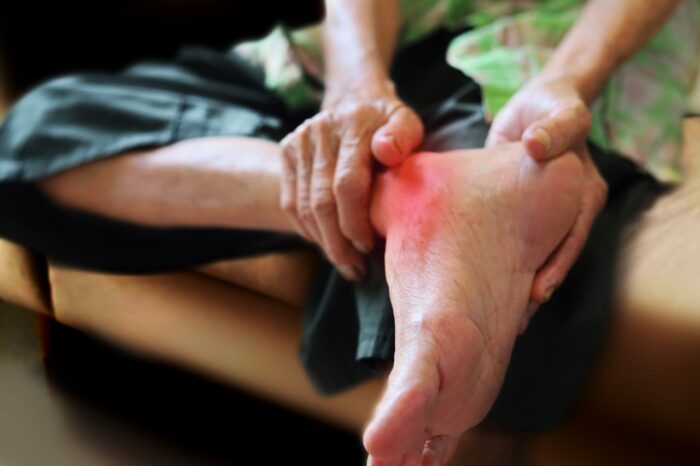Exploring the Intriguing Link Between Gout and Erectile Dysfunction
By Dr. David Samadi
The coexistence of gout and erectile dysfunction (ED) presents a complex interplay of factors that extend beyond mere coincidence. While grappling with the agonizing symptoms of gout, some men are dismayed to find themselves also contending with the challenges of ED. Various studies have highlighted a correlation between the two conditions, with research suggesting that men afflicted with gout may face an elevated risk of ED. This correlation highlights hyperuricemia and inflammation as independent risk factors for ED.
Gout affects over 8 million Americans, predominantly men, with women after menopause at a higher risk due to declining estrogen levels. Estrogen aids in the renal excretion of uric acid, the buildup of which underpins the pathogenesis of gout, termed hyperuricemia. Excessive uric acid crystallizes within joints, inducing excruciating symptoms characteristic of gout.
Uric acid, a byproduct of purine metabolism, typically undergoes renal excretion. However, in individuals producing excessive uric acid or consuming purine-rich diets, uric acid accumulates, precipitating gout. The deposition of needle-like monosodium urate crystals in joints, commonly associated with elevated urate levels, triggers inflammation, exacerbating joint pain and swelling, a hallmark of gout.
The nexus between gout and ED extends beyond joint affliction. High uric acid levels may precipitate endothelial dysfunction, compromising blood flow to the penis, thereby impeding erections. Endothelial dysfunction, characterized by impaired vascular function, manifests in a myriad of cardiovascular diseases (CVD), further linking gout with ED and cardiovascular risk factors.

In addition to gout, several other factors can precipitate ED:
- Diabetes: Approximately 50% of diabetic men experience ED due to elevated blood glucose levels and nerve damage, impeding penile blood flow and nerve function.
- Obesity: Excessive adiposity correlates with elevated cholesterol levels, promoting arterial plaque formation and hindering blood flow, thereby contributing to ED.
- Substance Abuse: Men who abuse alcohol, tobacco, or illicit drug use detrimentally impact cardiovascular and neurological function, exacerbating ED.
- Medications: Various pharmaceuticals, including antihypertensives, antidepressants, and antihistamines, may precipitate ED as a side effect, further complicating the clinical landscape.
Men afflicted with gout should undergo evaluation for ED to elucidate potential underlying etiologies and facilitate holistic management strategies. Addressing ED not only mitigates distressing symptoms but also serves as a crucial adjunct in the management of gout and associated comorbidities, including CVD.
Conclusion
In conclusion, the correlation between gout and ED transcends mere happenstance, reflecting a multifaceted interplay of pathophysiological mechanisms. By unraveling the intricate nexus between these conditions, clinicians can implement comprehensive management strategies to alleviate symptoms, mitigate associated risks, and enhance overall quality of life.
Dr. David Samadi is the Director of Men’s Health and Urologic Oncology at St. Francis Hospital in Long Island. He’s a renowned and highly successful board certified Urologic Oncologist Expert and Robotic Surgeon in New York City, regarded as one of the leading prostate surgeons in the U.S., with a vast expertise in prostate cancer treatment and Robotic-Assisted Laparoscopic Prostatectomy. Dr. Samadi is a medical contributor to NewsMax TV and is also the author of The Ultimate MANual, Dr. Samadi’s Guide to Men’s Health and Wellness, available online both on Amazon and Barnes & Noble. Visit Dr. Samadi’s websites at robotic oncology and prostate cancer 911.

